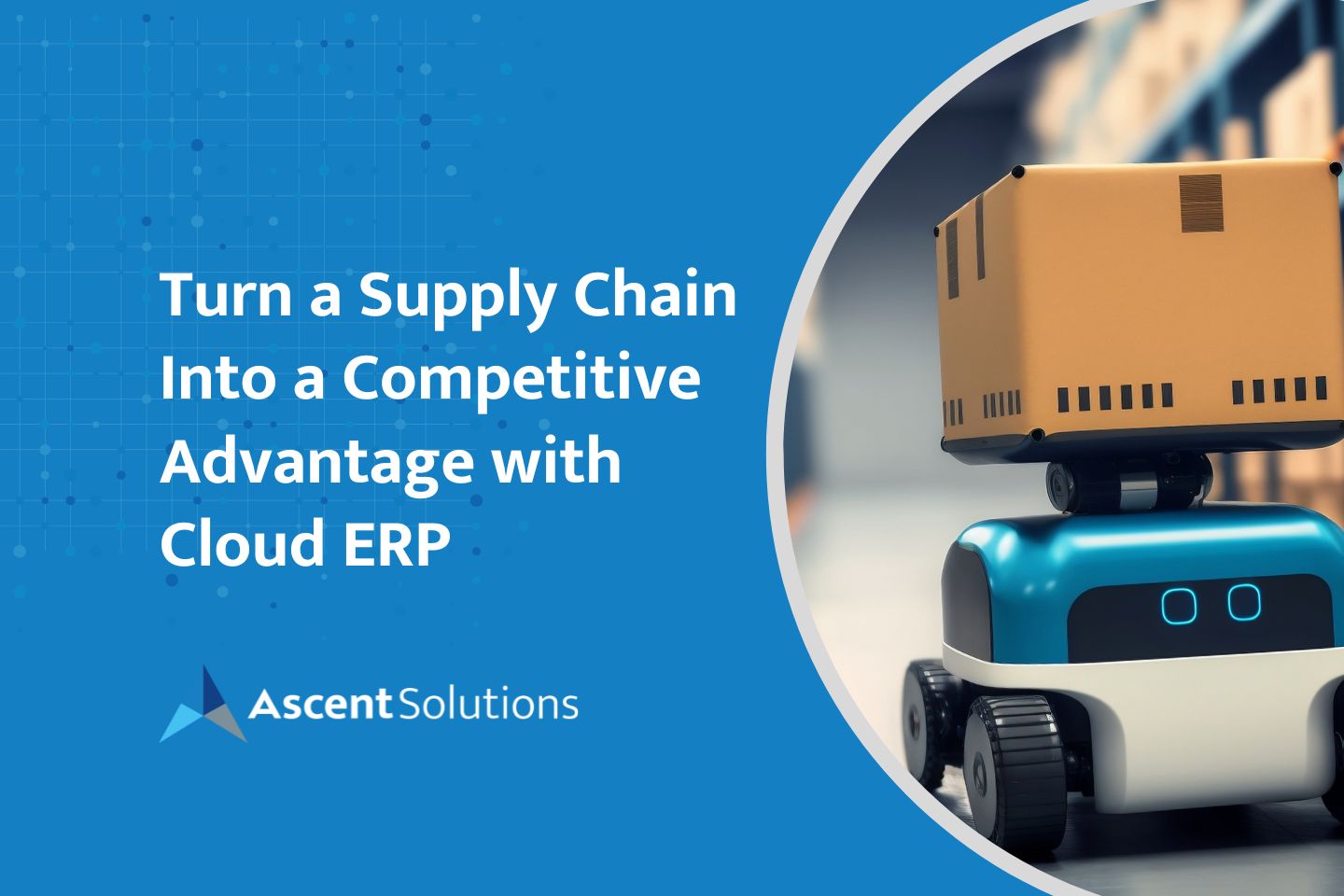Turn a Supply Chain Into a Competitive Advantage with Cloud ERP
View All: Resources

Competitive Edge in Modern Markets through Supply Chain Precision
We live in a world with fewer “easy” competitive advantage moats for companies to build. Consumers, and business partners, now look for additional benefits from companies that they do business with. Great products are table stakes. Companies must also provide transparency into factors such as leadership values, pricing, sustainability, and more.
However, a new competitive advantage has emerged in this challenging landscape — supply chain precision driven by cloud ERP. A well-optimized, and managed, supply chain serves as a formidable asset in today’s marketplace. With this in mind, we’d like to share five trends we see working with leading inventory-centric companies that have invested in cloud ERP technology on Salesforce over the last two decades.
Trend 1: Desire to Embrace Digital Transformation
We’ve written about the benefits for companies that embrace digital transformation before. How it relates to supply chain precision may be less obvious to companies that have not gone on this journey. Digital transformation with cloud ERP helps companies provide a myriad of supply chain use cases. Some of them include:
- Inventory control, visibility, serialization, and replenishment
- Bill of materials (BOM) creation and management
- Order fulfillment and work order management
- Vendor and purchasing (PO) management
- Returns management (RMA) / reverse logistics
- Warehouse operations
- Accounting and financial management
Furthermore, for years we have heard that RFID will solve inventory issues. As technology evolves, it has become more mainstream. Cloud ERP with warehouse mobility allows for granular in store inventory management and costs savings by reducing employee time spent measuring inventory levels, reducing shrinkage, and improving count accuracy. The ability to manage serialized products and make bulk item movement efficient are significant benefits to the bottom line.
To see real world examples of companies that have embraced cloud ERP on Salesforce, view our customer case studies.
Trend 2: Global Supply Chain Volatility
We live in a volatile world that can impact trade routes in unexpected ways. When less predictable global variables affect supply chains, gains must be made elsewhere to offset costs and inefficiencies. Cloud ERP is one such area of potential differentiation for an organization. Improving at predicting inventory needs, for example, puts less downstream pressure on a supply chain to deliver goods that would otherwise sit on warehouse shelves. Better returns management (RMA) enables retailers to resell inventory and recoup lost revenue. Lastly, better vendor and purchasing management helps companies identify their best trade partners or renegotiate/cease doing business with those that aren’t able to deliver as promised.
Trend 3: Game-changing AI for Retailers and Consumers
Artificial intelligence continues to grab headlines and that will be no different this year. What was once a nice to have technology for retailers, has become a must have with only 3% of organizations not having an AI plan, according to Salesforce research. The more companies embrace AI within their ecommerce and supply chain engines, the more real time insights they are able to utilize to improve the use cases mentioned above.
As the AI arms race continues, there are new gains companies can reap by selecting the right technology platform. Companies like Salesforce have been building AI tools for nearly a decade, and are adding new layers of sophistication with the break-through research in the field, led by OpenAI, and others.
Trend 4: Renewed Focused on Returns Management / Reverse Logistics
We’ve written about the billion dollar opportunity that exists for companies that improve reverse logistics. The new wrinkle in the trend is the growing fraudulent nature of many returns. A Wall St Journal report states that bogus returns surged by $100B in 2023. Free online returns appear to be one major culprit, which is all the more reason to embrace the cloud and gain more oversight into online orders, returns, and warehouse management.
Trend 5: Industry Giants Expand Offerings
The last trend we’ll cover is the growing ecommerce collaboration between major retailers, distributors, and fulfillment centers. Amazon and Salesforce recently announced a partnership that includes more ways for consumers to purchase goods via Amazon Prime. As more major players extend their commerce marketplaces, to gain new customer reach, there will inevitably be a greater need for oversight into the inventory and order management processes. Companies must closely monitor changes in consumer and partner demand, returns, warehouse and vendor management. A supply chain with more moving parts is a more complex one, where legacy apps, spreadsheets, and paper-based systems simply can’t keep up.
Did we miss any trends that you think will be impactful in 2024? Let us know and make sure to check out our 100% native Salesforce applications on the AppExchange, if you’d like to learn more about our technology solutions.
Follow Us
Have questions? We can help!
Ascent Solutions will provide you with ultimate customer service, attending to all of your needs promptly and efficiently. Our goal is to serve as your partner so that all of your needs are met in accordance with your schedule and align with your budget.
- Call Us: 908-981-0150
- Ascent: Contact Us
Related Posts
Categories
Why Ascent?
We are distribution and manufacturing technology enthusiasts that understood the term “ERP” was oversold and under delivered. We designed a flexible platform to ensure that we are able to adapt and evolve with businesses from the startup to enterprise level yet keep our offering affordable.




